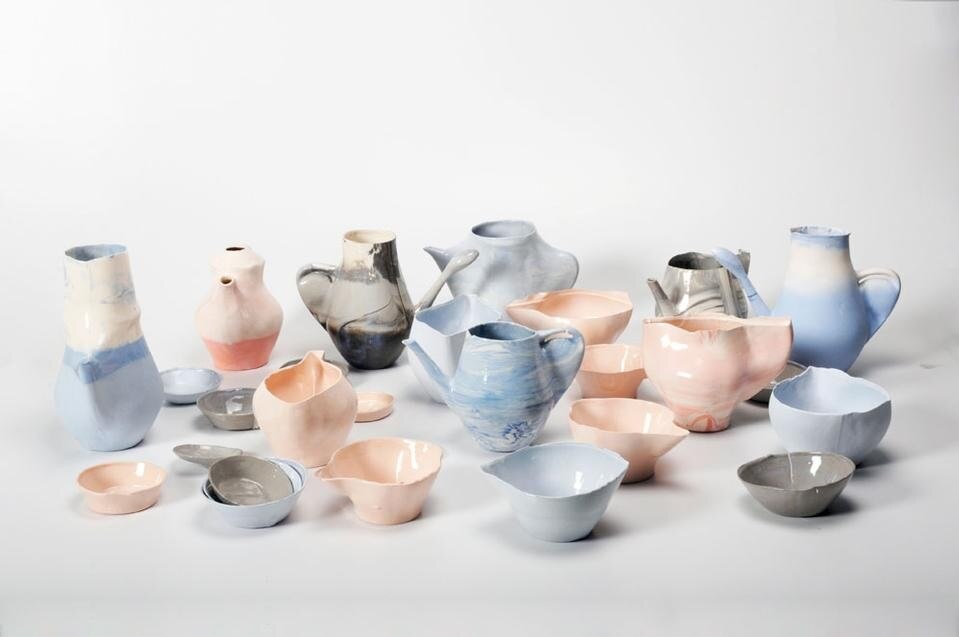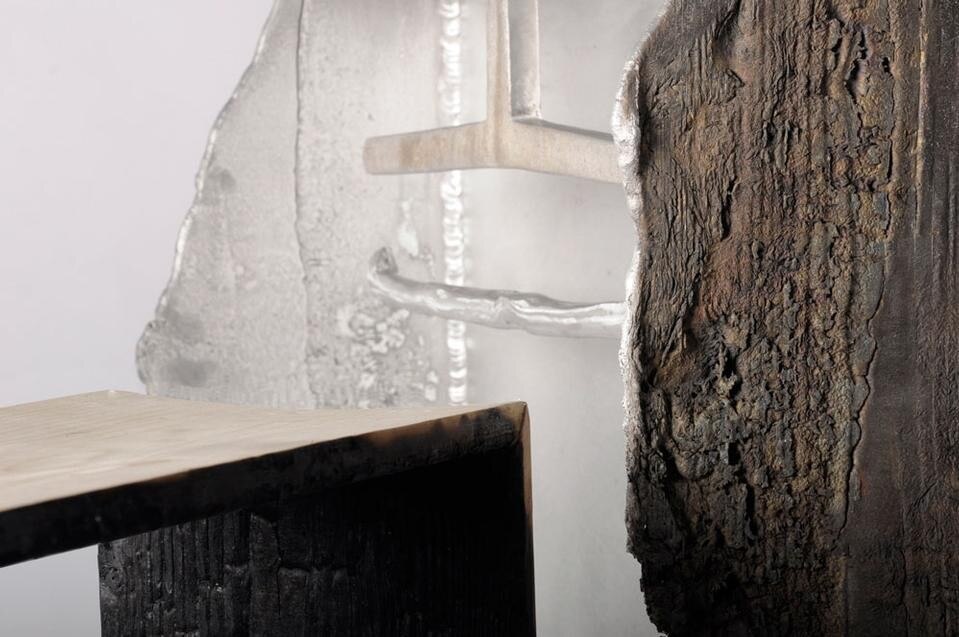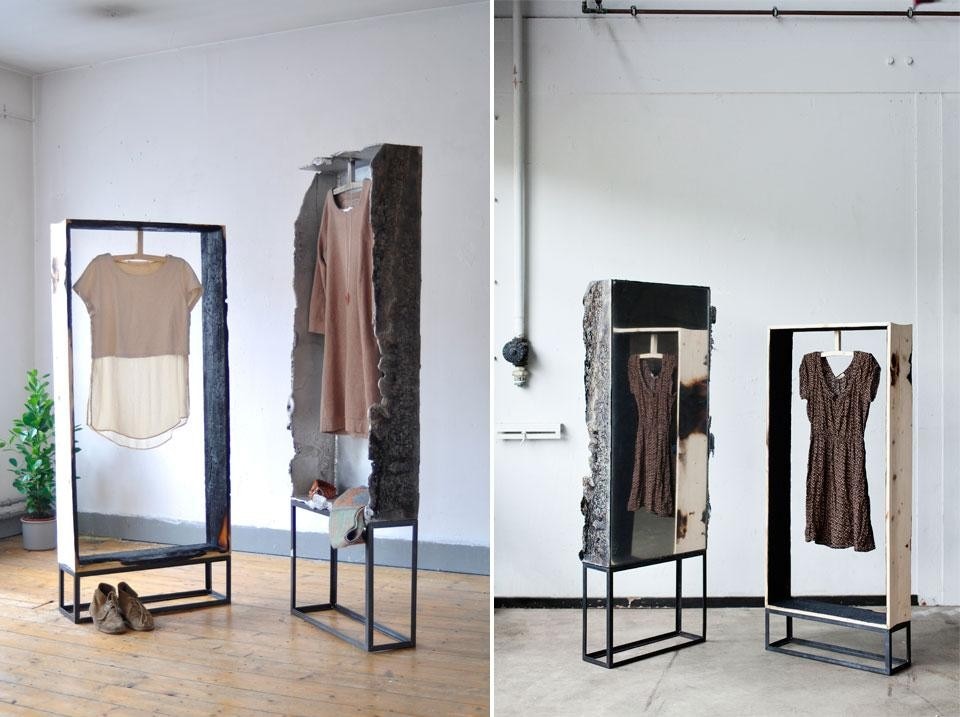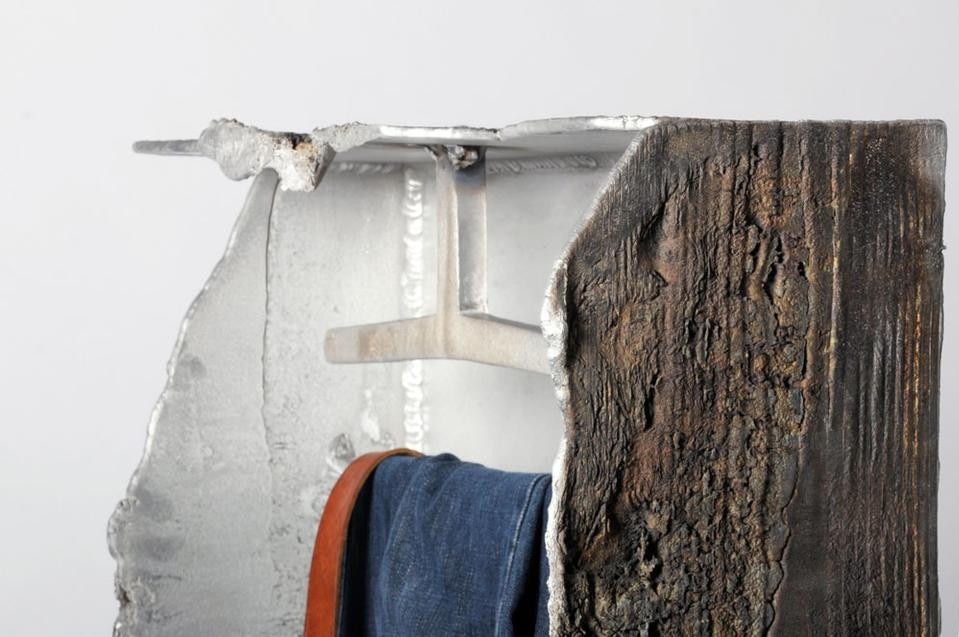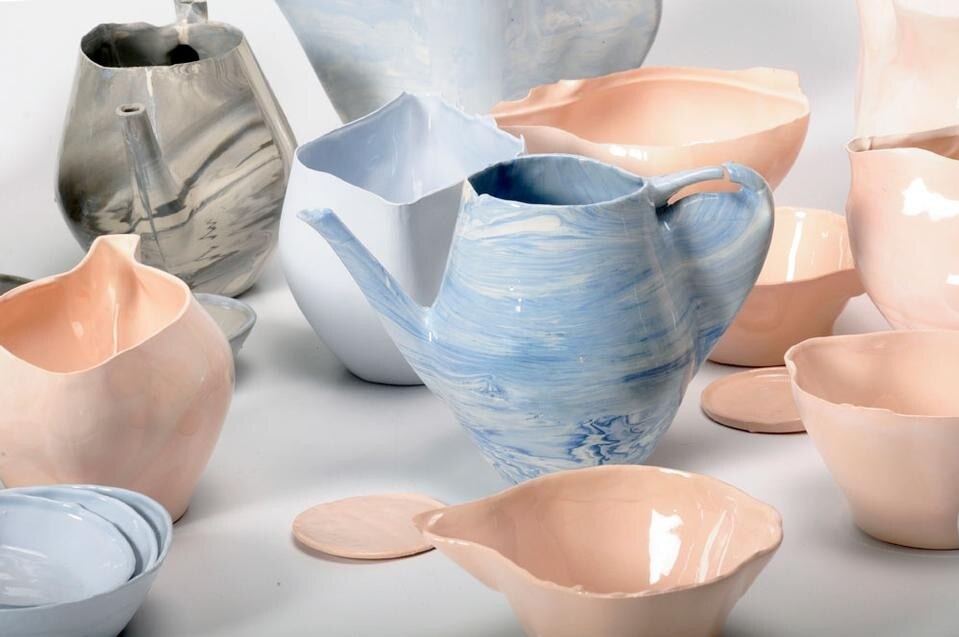"Today, the expression "form follows function" is no longer a representative statement of the design world," states Abreu Valente. "The shift has gone toward a more honest materialization of design thinking – in other words, the process."
"For me the end design of a product is less important than the process that precedes it. Therefore, in Process — The Performance of Matter, the approach is focused on the moment of transformation itself," continues the designer. "This research explores the idea of a "liquid process", essentially seeking a more fluid way of working. The question of whether an object could produce another object was the starting point of the research process, in which every action had a functional relevance."
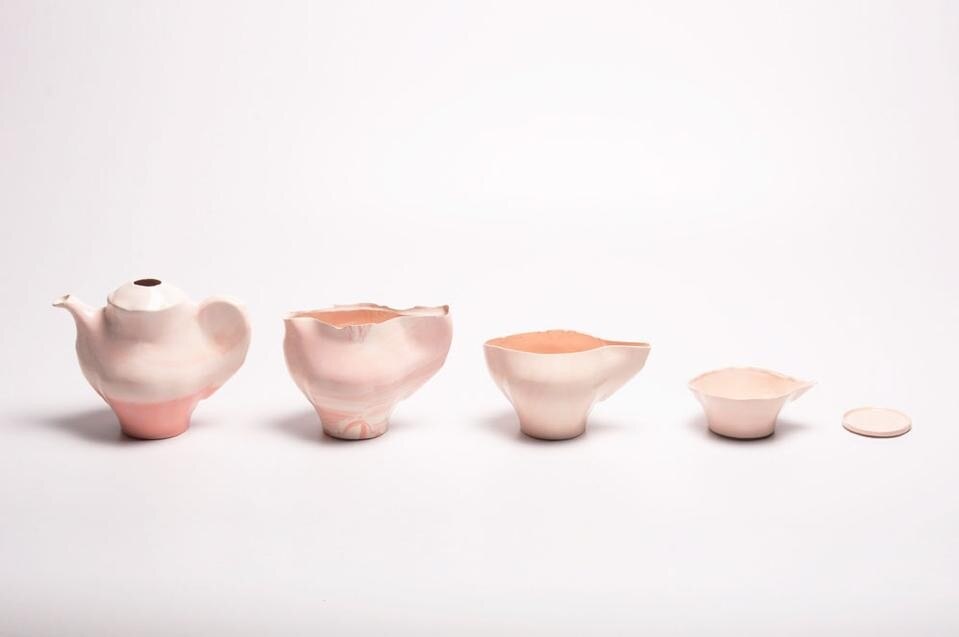
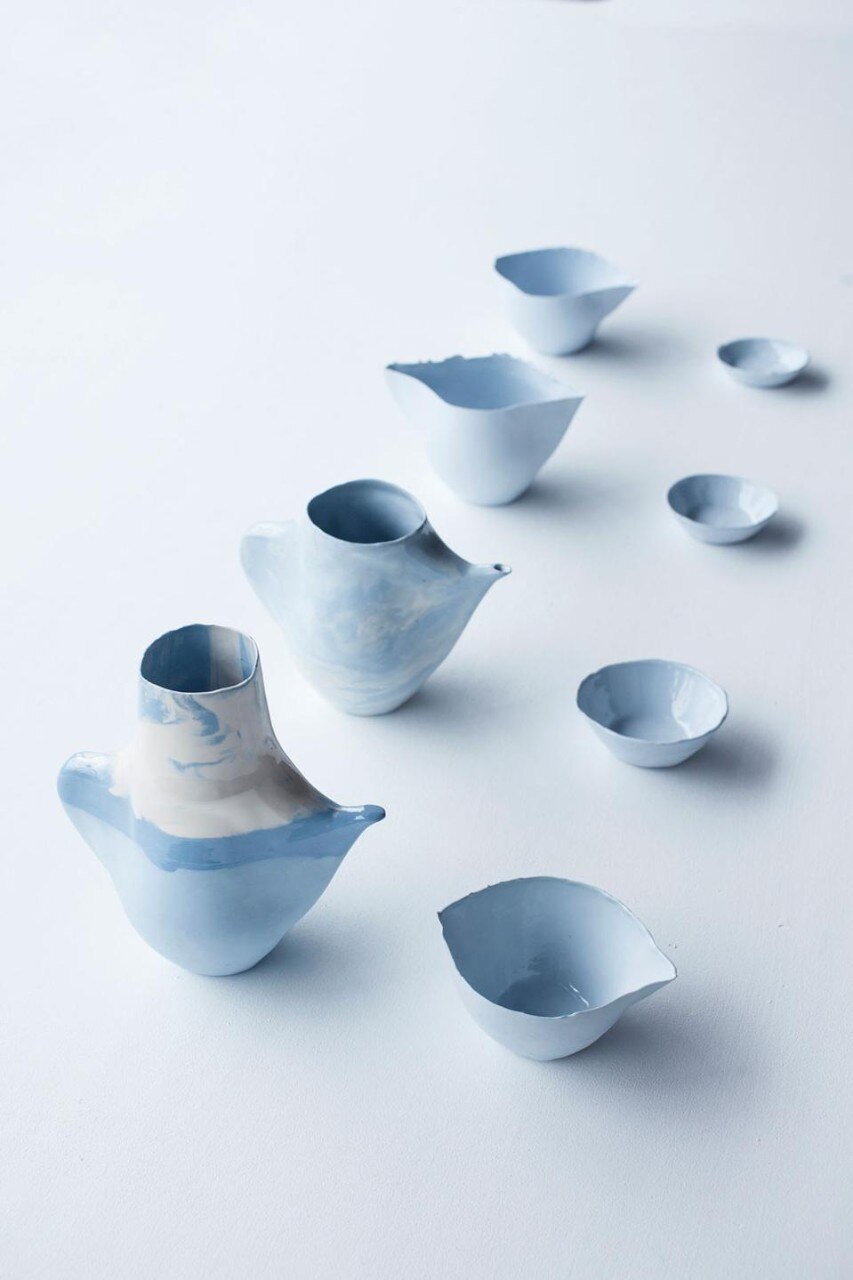
In Wood Casting, Abreu Valente casts aluminum in a wooden mold, allowing the process of transformation to generate its own ornament and function through a material interaction. The mirror is created by the process of pouring and polishing, revealing the reflective potential of the aluminum. The wooden section is visibly charred by the aluminum, and likewise, the aluminum mirror frame is imprinted by the wood that originally encased it.
"One object creates another object according to the functional need; they exist because of each other," states Abreu Valente, whose work was on display at the Design Academy Eindhoven's 2012 graduation show through last 28 October in Eindhoven, as part of this year's Dutch Design Week.
